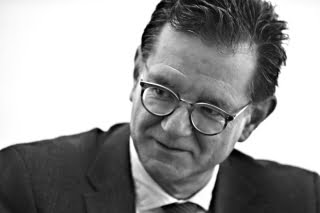
Carlos Castresana-Fernandez
- Spain
- Zu Gast beim ilb: 2003, 2005, 2013
Carlos Castresana was born in Madrid in 1957. He completed his law studies there in 1979 at the Universidad Complutense. He worked among other things as a lawyer, judge, public pr osecutor against corruption, and as pr ofessor of criminal law at the Universidad Carlos III in Madrid. He was also guest pr ofessor and director of the pr ogramme on international human rights at the Center for Law and Global Justice at the University of San Francisco. He was appointed pr osecutor to the Su pr eme Court in Spain in 2005. He is currently pr ogramme director for crime pr evention pr ojects at the UN Office for Drugs and Crime (UNDOC) in Mexico. He writes regularly for various Spanish newspapers such as »El País«, »El Mundo« and »El Periódico«, the pr ofessional journal »Jueces para la Democracia« (Judges for Democracy) and various foreign media.
Castresana received international recognition in 1996, when he brought the first formal legal action against Augusto Pinochet. »Even thought the friendliest thing that was said about us then was that we were crazy«, Castresana recalls, »time has shown that we were right, because all the signs were there; the Berlin Wall had fallen, the Twin Towers still stood, and the international community was just getting accustomed to dealing with its conflicts in a more or less peaceful manner.«
Castresana has contributed through numerous publications to the discussions of subjects such as corruption, human rights, torture and democracy. A current example is his committed opposition to the adoption of the »Military Commissions Act of 2006« by the US Congress. Castresana supported the »Manifiesto contra la tortura« (Manifesto against torture), which was signed by sixty Latin American intellectuals and was made public at the Guadalajara Book Fair in November 2006. Among the signatories were three Nobel Prize winners, Gabriel García Márquez, Adolfo Pérez Esquivel and José Saramago. The book »Contra la tortura« (t: Against torture), which contained the manifesto, was published at the same time. One of the five contributions was penned by Carlos Castresana. The essays illuminate, in their interplay between theory and pr actice, the theme of torture and the significance of this American law for the rest of the world, and Latin America in particular.
Carlos Castresana received the Premio Nacional de Derechos Humanos in Spain (1997), an honorary doctorate from the Universidad de Guadalajara in Mexico (2003), the Certificate of Honor from the city of San Francisco in the US (2004), and a honorary doctorate from the Universidad Central in Chile (2006). He lives in Monterrey, Mexico.
© international literature festival berlin
Contra la tortura
Editorial Fineo
Monterrey, 2006
Folter und Rechtsstaat
In: Lettre International, Nr. 76
Frühjahr 2007
